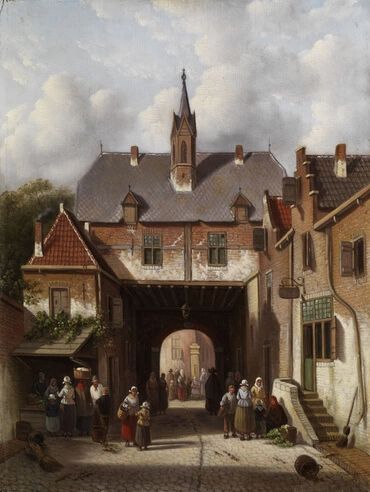1
Então me gritou aos ouvidos com grande voz, dizendo: Chegai, vós, os intendentes da cidade, cada um com as suas armas destruidoras na mão.
2
E eis que vinham seis homens do caminho da porta superior, que olha para o norte, e cada um com a sua arma de matança na mão; e entre eles um homem vestido de linho, com um tinteiro de escrivão à sua cintura. E entraram, e se puseram junto ao altar de bronze.
3
E a glória do Deus de Israel se levantou do querubim sobre o qual estava, e passou para a entrada da casa; e clamou ao homem vestido de linho, que trazia o tinteiro de escrivão à sua cintura.
4
E disse-lhe o Senhor: Passa pelo meio da cidade, pelo meio de Jerusalém, e marca com um sinal as testas dos homens que suspiram e que gemem por causa de todas as abominações que se cometem no meio dela.
5
E aos outros disse ele, ouvindo eu: Passai pela cidade após ele, e feri; não poupe o vosso olho, nem vos compadeçais.
6
Matai velhos, mancebos e virgens, criancinhas e mulheres, até exterminá-los; mas não vos chegueis a qualquer sobre quem estiver o sinal; e começai pelo meu santuário. Então começaram pelos anciãos que estavam diante da casa.
7
E disse-lhes: Profanai a casa, e enchei os átrios de mortos; saí. E saíram, e feriram na cidade.
8
Sucedeu pois que, enquanto eles estavam ferindo, e ficando eu sozinho, caí com o rosto em terra, e clamei, e disse: Ah Senhor Deus! destruirás todo o restante de Israel, derramando a tua indignação sobre Jerusalém?
9
Então me disse: A culpa da casa de Israel e de Judá é grandíssima, a terra está cheia de sangue, e a cidade cheia de injustiça; pois eles dizem: O Senhor abandonou a terra; o Senhor não vê.
10
Também, quanto a mim, não pouparei nem me compadecerei; sobre a cabeça deles farei recair o seu caminho.
11
E eis que o homem que estava vestido de linho, a cuja cintura estava o tinteiro, tornou com a resposta, dizendo: Fiz como me ordenaste.







